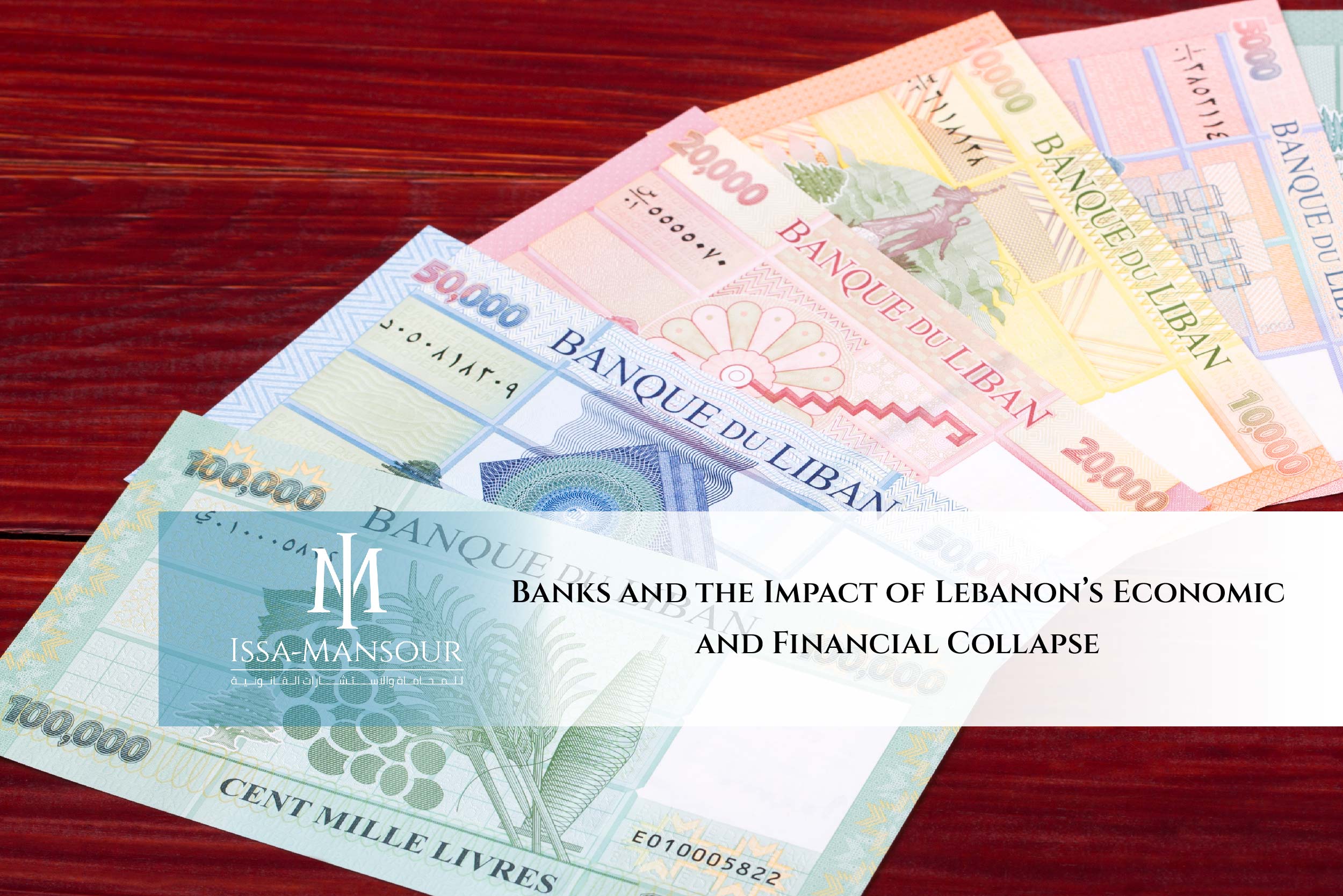The economic and financial collapse that hit Lebanon in October 2019 continues to have devastating effects, particularly on the banking sector. One of the most significant consequences has been the sharp devaluation of the Lebanese pound against the US dollar, leaving many Lebanese citizens unable to access their bank deposits. The financial crisis, coupled with restrictions imposed by the Central Bank of Lebanon through various circulars and the tight withdrawal and transfer policies set by banks, has further aggravated the situation.
Amid this turmoil, and in the absence of any legislation from the Lebanese Parliament to resolve these issues—specifically the much-discussed Capital Control Law—banks have faced a wave of lawsuits from depositors. These depositors are seeking to reclaim their funds either in cash or by transferring them to banks outside Lebanon. Furthermore, many borrowers attempted to repay loans in Lebanese pounds at an unrealistic exchange rate, even though these loans were originally contracted in US dollars.
Initially, many court rulings favored depositors and borrowers, forcing banks to comply with their demands. However, after about a year, the legal landscape began to shift. Courts of Appeal overturned several initial rulings, and a growing number of judges adopted new approaches in their decisions, rebalancing the obligations between depositors, borrowers, and banks. This change in judicial reasoning paved the way for numerous settlements between disputing parties, which, in the absence of formal legislation, may represent the best possible outcome for all involved.
From our extensive experience in this field, we advise anyone entangled in such disputes—particularly those with outstanding loans—to seek amicable settlements. We strongly recommend that both parties work toward mutually beneficial resolutions that protect their interests, under the guidance of their legal representatives.

